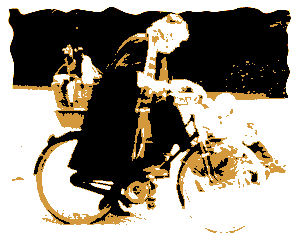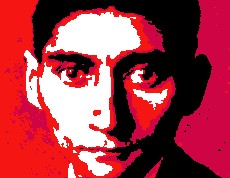Film Review

The metaphor of the butterfly chase of the film's title proved to be a highly appropriate one. The wealthy Japanese business men are effectively butterfly hunters who want to seize a thing of beauty (in this case a French château) and add it to their collection. But, in so doing, they end up destroying the charm that lured them to it in the first place - like butterfly collectors they kill the thing they admire. The quirky style of the film is a sophisticated variation on that of Jacques Tati's comedies (such as Les Vacances de Monsieur Hulot (1953)), where all of the characters are viewed from a distance without any obvious attempt at putting together a well structured story. Events just unfold, seemingly randomly and without any purpose - as they often seem to in real life. The pleasure in watching this film is not in understanding what has happened but in being constantly surprised at what will happen next. Often, the sheer weirdness and unexpected turns the film takes is in stark contrast to the naturalistic performances and stone sober photography. Whilst the film's lack of structure and surfeit of whimsy can be occasionally frustrating, La Chasse aux papillons does have a unique and irresistible charm.
© James Travers 2001
The above content is owned by frenchfilms.org and must not be copied.
Film Synopsis
Two old ladies, Marie-Agnès de Bayonnette and her cousin Solange, live in a chateau in the French countryside. They represent a way of life that is perilously close to disappearing. Already, the villagers have become accustomed to the presence of Hari Krishna followers, and a group of wealthy Japanese business men are determined to buy Marie-Agnès' château for their new company headquarters...© James Travers
The above content is owned by frenchfilms.org and must not be copied.
Similar Films
Here are some other films you may enjoy watching:- Palais royal! (2005)
- Grosse fatigue (1994)
- Astérix et Obélix contre César (1999)
- Tenue de soirée (1986)
- La Doublure (2006)
Other related links:
Film Credits
- Director: Otar Iosseliani
- Script: Otar Iosseliani
- Cinematographer: William Lubtchansky
- Music: Nicholas Zourabichvili
- Cast: Narda Blanchet (Solange), Pierette Pompom Bailhache (Valerie, gouvernante), Aleksandr Cherkasov (Henri de Lampadere), Thamara Tarassachvili (Marie-Agnes de Bayonette), Alexandra Liebermann (Helene), Lilia Ollivier (Olga), Emmanuel de Chauvigny (Pater Andre), Sacha Piatigorsky (Sultan), Anne-Marie Eisenschitz (Marie), Françoise Tsouladzé (Yvonne, dawdler), Maimouna N'Diaye (Caprice), Yannick Carpentier (Monsieur Capentier), Pascal Bonitzer, Georges Giant, Ghislaine de Beauregard, Pascal Aubier, Ludmila Pernot, Bagrat Tsouladze, Martine Boutang, Annie De La Celle
- Country: France / Italy / Germany
- Language: French
- Support: Color
- Runtime: 115 min
Kafka's tortuous trial of love

The best French Films of the 1910s

The best films of Ingmar Bergman
